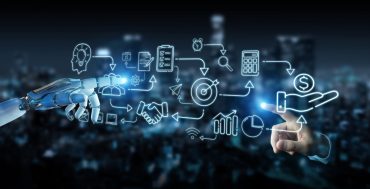
From fraud adoption to IT optimization, both AI and ML will deliver on years of promise as the early adoption phase gives way to more mainstream rollouts.
From fraud adoption to IT optimization, both AI and ML will deliver on years of promise next year as the early adoption phase finally gives way to more mainstream rollouts.
This is one of the many prognostications Splunk has offered in its new eBook, “Splunk 2019 Predictions,” which pulls together insights from thousands of its customers and dedicated research teams.
The report focuses on four main areas: AI and machine learning, security, IT operations, and IoT.
Despite a clear acceleration in AI adoption, the report notes that the industry is still in the early days of delivering enterprise-relevant AI- and ML-backed solutions that are both manageable and provide high ROI. Yet those early adopters tend to benefit from clear advantages. Deloitte surveyed 250 early adopters of AI and found that 83% said they “have already achieved either moderate or substantial benefits from their work with these technologies” across a wide spectrum of business activities.
See also: Splunk to extend analytics reach across multiple data platforms
Perhaps even more surprisingly, more than three-quarters of these early adopters say that cognitive technologies will transform their business in just three years or less. This trend suggests even greater change in the near future.
As a result, Splunk sees eventual widespread disruption in the job market. There won’t be a net loss of jobs, the report claims, but there will be a substantial transition to new types of AI- and ML-friendly jobs, and not just those requiring PhDs in data science.
McKinsey suggests that by 2030, 375 million workers, or 14 percent of the global workforce, will need to “switch occupational categories.” Gartner predicts that AI will create 2.3 million jobs in 2020 while eliminating 1.8 million.
In 2019, the report continues, multi-cloud deployments instigated by the need to simplify workflows and augment cloud benefits will break down more walls between datasets and workflows. DevOps adoption will also increase the collaboration and APIs will continue to bring technologies together, looking to increase the productivity of users and yield greater benefits.
This increasing connectivity will create headaches for security teams, which are already understaffed and overworked.
On the bright side, Splunk also predicts that security teams will benefit from big data platforms, machine-learning-based analytics, and orchestration and automation technologies.
Moving from a single cloud to a multi-cloud approach will become the norm, according to Splunk, especially when it comes to larger organizations. But this will also create security challenges.
“In this environment, it will be paramount for an organization to know what’s happening from performance, availability and observability angle across all the providers while being able to correlate it across the stack,” the eBook said. “From a data perspective, this will mean having a way to unify meaningful insights from across a variety of data types and sources.”
The buzz around IoT has been constant, but the spotlight has been focused on the consumer end for too long. This will also change in 2019.
To download the eBook, please click here.





























